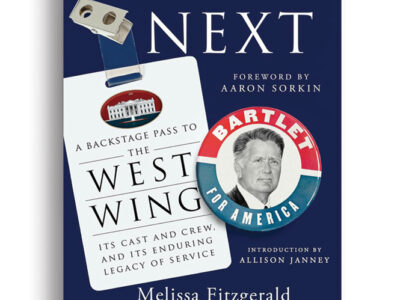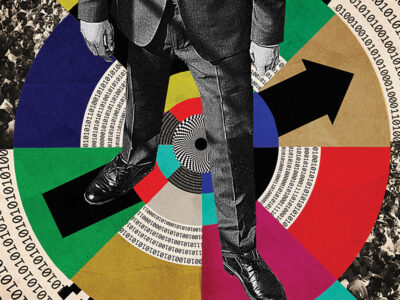
When will the political fundraising emails reach a saturation point?
Toward the end of a lunchtime “Knowledge By the Slice” panel discussion with Penn political science faculty on the Democrats’ surprisingly strong showing in the November 2022 midterm elections, an audience member asked about the avalanche of fundraising emails and texts sent out by and on behalf of Democratic candidates. While such appeals are “nothing new,” the questioner noted, “this cycle certainly felt more aggressive, and I think that there was some more intense backlash to those types of tactics. I wonder if anything in your polling or research reflected on whether those sorts of practices were effective or not?”
Responding to the query, political science professor Matthew Levendusky reported that he had asked that very question of “someone that we all know who worked for the Obama campaign.” This source told him that a series of experiments in 2008 and 2012 showed that “basically there was no point of saturation—that every additional email got you more money.” But, Levendusky added, “I think we’re past that now. I make a point to scrupulously not sign up for any of those things, but everyone I know who did just was inundated with them.”
While doubting that “the xth email ends up generating a lot,” he emphasized that Democrats “have really done a better job institutionally than Republicans in building out the small-dollar fundraising,” allowing them to “make up some of the big-dollar fundraising, where they’re structurally disadvantaged relative to Republicans.”
Apart from analyzing what sort of email appeal nets slightly more money, fellow political science professor Daniel Hopkins continued: “There’s what economists refer to as a general equilibrium effect here: If you get 1,000 emails, you’re going to start unsubscribing, and more generally going to start tuning them out.
“We should also, at that volume, start to ask ourselves not just what’s the effect of the marginal email, but what’s the opportunity cost here? What does it mean when parties’ primary relationship to voters is not any kind of face-to-face connection, it’s not any ward system—it’s not, you know, intensive canvassing, it’s not conversations … it’s just: you can expect a million and a half emails in the six weeks before an election telling you that the world is ending.
“No one candidate has an incentive to stop, right? Because they’re all going to get more money if they send the emails than if they don’t. But the cumulative effect could be that our relationship to our political parties is very, very different than it was in prior decades.” —JP




